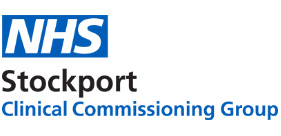Gold Awards for GPs Cancer Prevention Work
28th June 2018
Two GP practices in Stockport picked up the Gold Healthy Bowel Promoting Practice Award last week for their outstanding work on bowel cancer prevention amongst their patients.
Cheadle Medical Practice and Park View Group Practice in Reddish join a very select band of just four surgeries in Greater Manchester whose excellent work has led to their Gold Award status.
And what’s even more impressive is that all four of those surgeries are in Stockport – the other two being Beech House Medical Practice and Heaton Mersey Medical Centre who received their awards late last year.
The Gold Award recognises a practice’s commitment and dedication, to ensuring that men and women aged between 60 and 74 years understand the importance of screening for bowel cancer and are aware of the early signs and symptoms.
Both Cheadle MP and Park View GP have active and engaged Practice Cancer Champions whose role is to improve screening uptake and early diagnosis in their practice.
The award is run by Greater Manchester (GM) Bowel Movement team who aim to raise awareness of the screening programme to ensure early diagnosis.
Free training is offered to GPs and doctors across Greater Manchester to help medical practices effectively support patients with information about the screening process and screening kit.
Stockport CCG’s Chief Clinical Officer and local GP, Dr Ranjit Gill, said ”Once again Stockport’s GP practices have proved themselves to be shining examples of how best to look after patients.
“Our practices just keep winning awards, both regional and national, which is not surprising as quality of the service they provide is second to none.”
Councillor Tom McGee, Stockport Council’s Cabinet Member for Health who presented both awards, said “It’s fantastic that Stockport practices are leading the way in raising awareness of bowel cancer screening for their patients. We know that increasing uptake of bowel cancer screening says lives so this work is very important.”
Bowel cancer is the fourth most common cancer in the UK today, affecting around 1 in 19 women and 1 in 14 men. Research shows almost everyone diagnosed early will survive.
